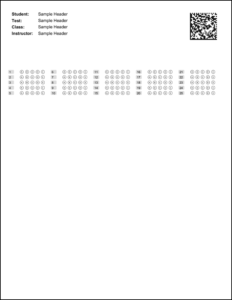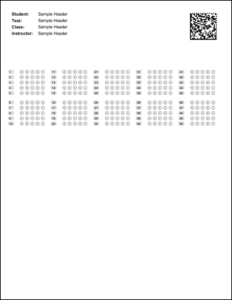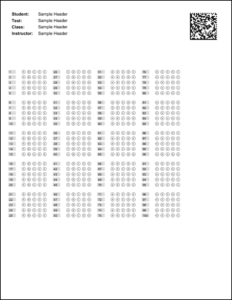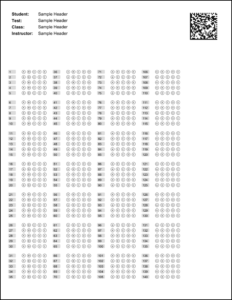
You asked, we listened! With our latest update to Remark Test Grading Cloud, you now have the ability to expedite the test creation process by choosing from a set of standard test forms instead of creating custom test answer sheets. When creating a test, you can now choose forms with 25, 50, 100, or 200 multiple choice questions. If these standard forms don’t have your exact amount of desired questions, fear not! Any question marked as ungraded in the answer key will not be graded.
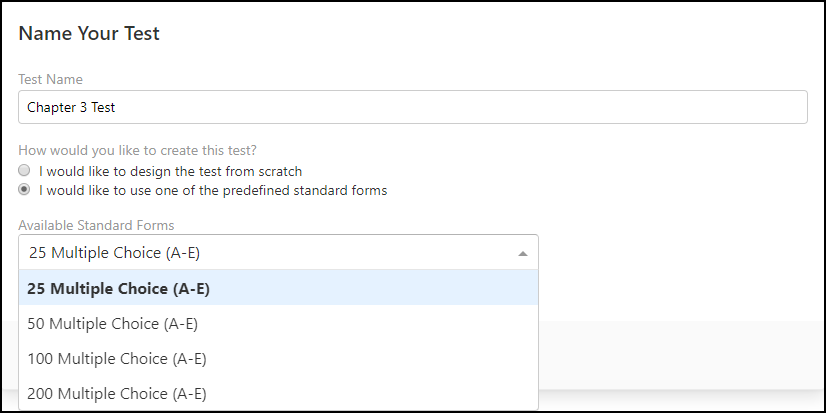
Creating a test using a standard test form is simple. When creating a new test, specify whether you want to create a custom test or use a standard test form. Choose the option to use one of the standard forms, and then select the test form with the desired number of questions and whether you want to include a student ID region (if not, names are printed on the form). The form is created automatically and you are immediately taken to that test screen where you can print the tests.
If desired, these standard forms can also be edited after they are initially created. Choose to add additional multiple choice, math or open response questions, adjust answer choices, or add any other form elements.
Try out the standard test forms the next time you create a test and let us know what you think. We greatly appreciate your feedback and suggestions. We hope you enjoy the standard test forms!
What Now?








Trademark, Copyright, and Legal Information – Privacy Statement
Copyright © 2024 Gravic, Inc. All Rights Reserved.
Necessary cookies are absolutely essential for the website to function properly. This category only includes cookies that ensures basic functionalities and security features of the website. These cookies do not store any personal information.
Any cookies that may not be particularly necessary for the website to function and is used specifically to collect user personal data via analytics, ads, other embedded contents are termed as non-necessary cookies. It is mandatory to procure user consent prior to running these cookies on your website.
Advertisement cookies are used to provide visitors with relevant ads and marketing campaigns. These cookies track visitors across websites and collect information to provide customized ads.
Undefined cookies are those that are being analyzed and have not been classified into a category as yet.
